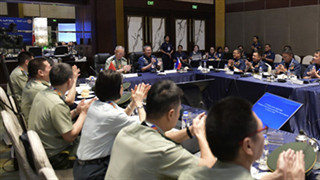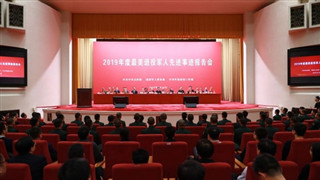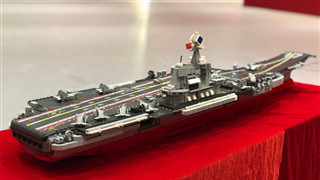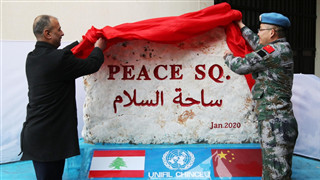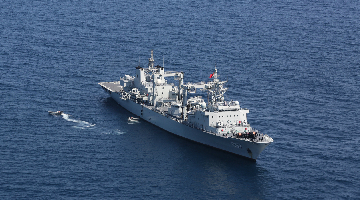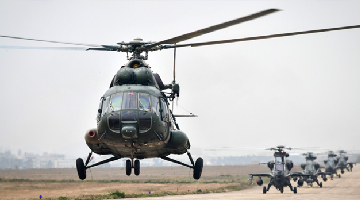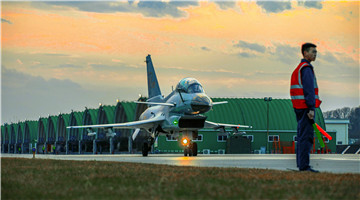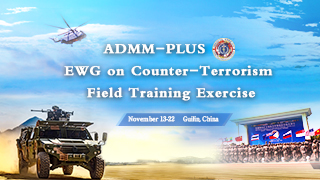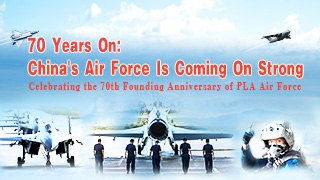
By Sun Chenghao
The 56th Munich Security Conference (MSC) was held in Munich, Germany, from February 14 to16, during which senior defense officials and experts from various countries discussed the topic of “westlessness”. As an important forum on international strategy and security, the MSC is aimed at analyzing the complex challenges facing the western world, with the one this year no exception.
As the organizer says, “westlessness” conveys a widely perceived anxiety that stems from the uncertainty of the West’s long-term goals and the absence of a common Western stance. It’s fair to say that “westlessness” points straight to the heart of the west’s current problems. “The West” was a concept of frequent occurrence in the Cold War period, which then referred to the alliance mainly comprising North America and West Europe. It remained a collective concept based on those two blocs after the Cold War, and the post-WWII international order led by them laid the institutional foundation on which the west relied.
However, the profound adjustment in the US-Europe relation since Trump came into office has led to seismic changes in the western world and the international order established under its lead, and to the gradual collapse of a collective western identity. The wide-ranging divergences between the two sides have affected their relationship so deeply and extensively that the US and Europe are experiencing an identity crisis more unsettling than the one triggered by the Iraqi war in 2003. Just as the Munich Security Report 2020 pointed out, the western world itself is seriously divided regarding “what is generally described as the West”.
The “America First” strategy upheld by Trump has lent a heavy blow to the West for it discords with the west’s inherent, mainstream values. In economy and trade, the Trump administration, regardless of its allies’ interests, has constantly tried to bend Europe through hardball diplomacy and tariff imposition. Regarding security, although Trump hasn’t put his backlash against NATO into anything concrete yet, his ambiguous attitude toward Russia and aggressiveness on NATO’s military expenses is anything but reassuring for the European allies. In terms of global governance and multilateral diplomacy, America’s unilateralism goes tit-for-tat against Europe’s multilateralism. Washington has pulled back from a number of international organizations, including UNESCO, and it goes in the opposite direction with Europe on climate change and the Iranian nuclear issue too.
The post-war international order was jointly established by the US and Europe. The former responsible for leadership and supervision, while the latter execution and maintenance. Such an order in a way forges the common interests of the two parties and endows the word “West” with substances. Nevertheless, now the western world, still dominated by the US and Europe, is deeply divided over how or even whether to defend the existing international order. Maintaining the post-WWII order was once the common goal of the US and Europe, but now they have fundamental conflicts and divergences on how to maintain it, exposing it to bigger challenges.
Therefore, the re-emergence of the western identity crisis has sent the current international order a much stronger shock than before. America’s unilateral launch of the Iraqi war in 2003 caused some European countries to have a collective identity crisis about the western world as they felt uneasy about the rampant Washington’s hegemony. This round of oscillation in the US-Europe relation is much different because what Europe is now concerned about is America completely negating the post-war international order and relevant mechanisms. In the eyes of America’s western allies, Trump’s breach of strategic commitments has sabotaged the foundation for their strategic collaboration. Perhaps the answer to the reasons for westlessness can be found in the America First policy.
(The author is an assistant researcher at the Institute of American Studies, China Institutes of Contemporary International Relations)
